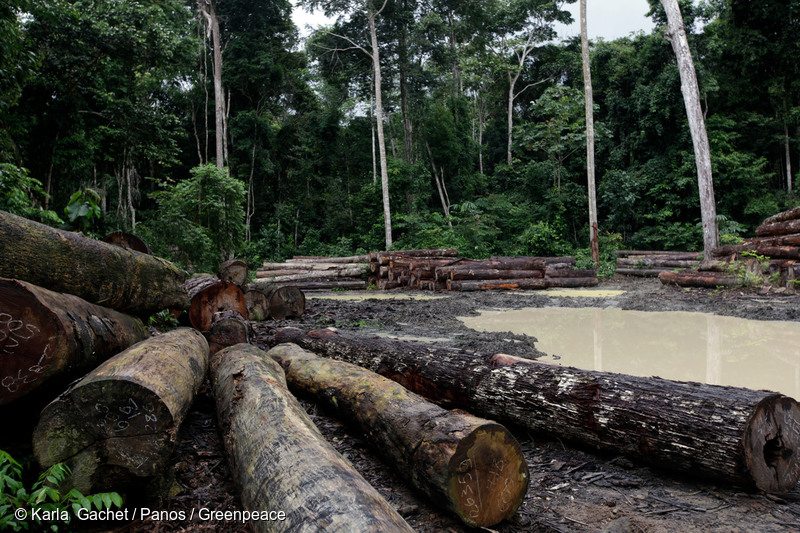Almost two years after federal authorities raided Lumber Liquidators’ headquarters, the U.S. Department of Justice and the company have now reached a settlement. The nation’s largest hardwood flooring retailer has admitted guilt to several misdemeanors and a felony under the U.S. Lacey Act. Most of the admissions related to findings surfaced in the Environmental Investigation Agency’s “Liquidating the Forests“ report, which focused on oak flooring sourced from endangered forests in the Russian Far East via China.
Aside from the settlement’s $13 million fine, internal reactive shifts and bad publicity — as well as other scandals in the past year — have been costly for the company.
This historic settlement is the first time that a company has been found guilty under the Lacey Act for importing illegal wood products, which could turn out to be an important milestone. Hopefully, the case will serve as a reminder to other companies that import wood from high risk areas that they should avoid cutting corners and instead scrutinize their suppliers.
Lacey Act enforcement is key for addressing the demand for cheap illegal wood products that are funding corrupt networks, financing organized crime, degrading forests globally, destroying livelihoods of traditional forest communities and threatening vital wildlife habitat.
Illegal and predatory logging still plague the world’s most important forests and U.S. companies remain complicit, as Greenpeace has documented in the Congo Basin and in the Amazon over the past two years. Last year — several months after the U.S. government raided Lumber Liquidators headquarters — Greenpeace published “The Amazon’s Silent Crisis,” an investigation naming Lumber Liquidators as one of the U.S. companies unable to determine whether the Brazilian timber it was buying was legal or illegal.
What Comes Next
Under the settlement, Lumber Liquidators has a three-month deadline to produce a robust strategy to address its exposure to illegal timber in its global supply chain. Although this will make buying illegal timber less likely, Lumber Liquidators and other major customers of timber products also need to pay close attention to how sustainable their sources are.
This is why Lumber Liquidators needs to further develop its criteria for sustainable wood sourcing, something thousands of supporters have called for. Such criteria should pay close attention to the rights of traditional forest communities, including Indigenous Peoples, and ensure that these peoples’ rights to Free Prior and Informed Consent are honored by company suppliers. Lumber Liquidators should also join the growing trend of leading companies that have committed to source forest products produced in a way that maintains the integrity of the world’s most important forests, including wildlife habitat, high carbon stock and Intact Forest Landscapes.
Legal compliance is fundamental for knowing where one’s supply is coming from, but without strong and detailed sustainability criteria, the world’s most important forests remain under threat.



